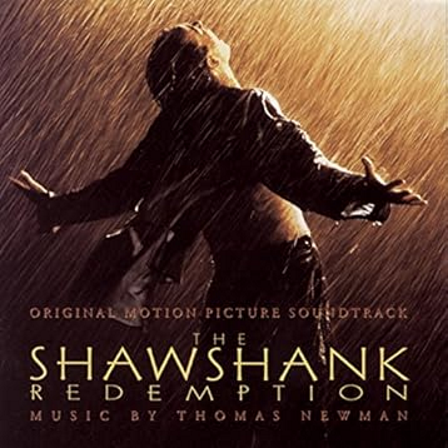Top Film Score Collection - Part 5
The Magnificent Seven
Apollo 13
Apollo 13 Film Score: A Soaring Tribute to Resilience
James Horner’s score for Apollo 13 (1995), released by MCA Records, is a stirring blend of tension and triumph for Ron Howard’s space drama. Recorded with a full orchestra and choir in Los Angeles, Horner’s work captures the 1970 mission’s peril and hope. With lush strings, bold brass, and Annie Lennox’s haunting vocals in “End Titles,” the soundtrack elevates the film’s emotional stakes.
Variety’s Jon Burlingame praised it, saying, “Horner’s score turns a technical tale into a deeply human journey.”
Top Tracks:
1. "Main Title" - A majestic, uplifting theme setting the mission’s grandeur.
2. "Re-Entry and Splashdown" - A tense, triumphant build to a cathartic resolution.
3. "End Titles" - A soulful, vocal-led finale blending awe and reflection.
Nominated for an Oscar, the score—later expanded in 2018 by Intrada—showcases Horner’s knack for emotional storytelling. From quiet piano moments to soaring crescendos, it mirrors the astronauts’ grit and NASA’s ingenuity. Apollo 13’s soundtrack remains a powerful testament to human spirit, making it one of Horner’s most celebrated works.
Legends of the Fall
The Edge
The Primal Pulse of The Edge’s Film Score
Jerry Goldsmith’s score for The Edge (1997) is a taut, visceral masterpiece that amplifies the film’s survivalist drama. With brooding strings, sharp percussion, and haunting woodwinds, Goldsmith captures the Alaskan wilderness’ beauty and menace as billionaire Charles Morse faces nature and betrayal. The score blends primal intensity with moments of introspection, its rhythmic drive mirroring heart-pounding bear chases and quiet resilience. Goldsmith’s use of sparse, evocative motifs underscores themes of instinct and redemption, elevating the film’s raw tension.
Christian Clemmensen of Filmtracks praises, “Goldsmith’s The Edge is a gripping, elemental score that roars with the wilderness’ untamed spirit” (filmtracks.com, 1997).
Top 3 Tracks:
1. “Lost in the Wild” – A tense, pulsing track with jagged strings, evoking the struggle for survival.
2. “The Edge” – A majestic, brass-led theme that captures the vast, unforgiving landscape.
3. “Rescue” – A stirring, emotional cue with soaring strings, reflecting hope amid desperation.
Goldsmith’s score is a powerful force, as unrelenting and awe-inspiring as the wilderness it portrays, cementing its place in adventure cinema.
Pirates of the Caribbean: The Curse of the Black Pearl
K-PAX
The Cosmic Serenity of K-PAX’s Film Score
Edward Shearmur’s score for K-PAX (2001) is a luminous blend of orchestral and electronic elements, perfectly complementing the film’s enigmatic tale of Prot, an alleged extraterrestrial. With gentle piano, ethereal synths, and soaring strings, Shearmur crafts a soundscape that feels both introspective and otherworldly. The music captures themes of hope, mystery, and human connection, balancing quiet introspection with moments of transcendent wonder. Its minimalist approach evokes the vastness of the cosmos while grounding the emotional journey of belief and healing.
Soundtrack reviewer Christian Clemmensen notes, “Shearmur’s K-PAX score is a delicate, haunting work that resonates with quiet profundity” (filmtracks.com, 2001).
Top 3 Tracks:
1. “Grand Central” – A tender, piano-driven piece that blends curiosity and melancholy, reflecting Prot’s arrival.
2. “Blue Light” – An ethereal track with shimmering synths, evoking the film’s cosmic mystery.
3. “6th July – The Experience” – A soaring, emotional climax with strings and electronics, capturing revelation and awe.
Shearmur’s understated yet evocative score for K-PAX invites listeners to ponder the stars and the heart, a hidden gem in sci-fi scoring.










